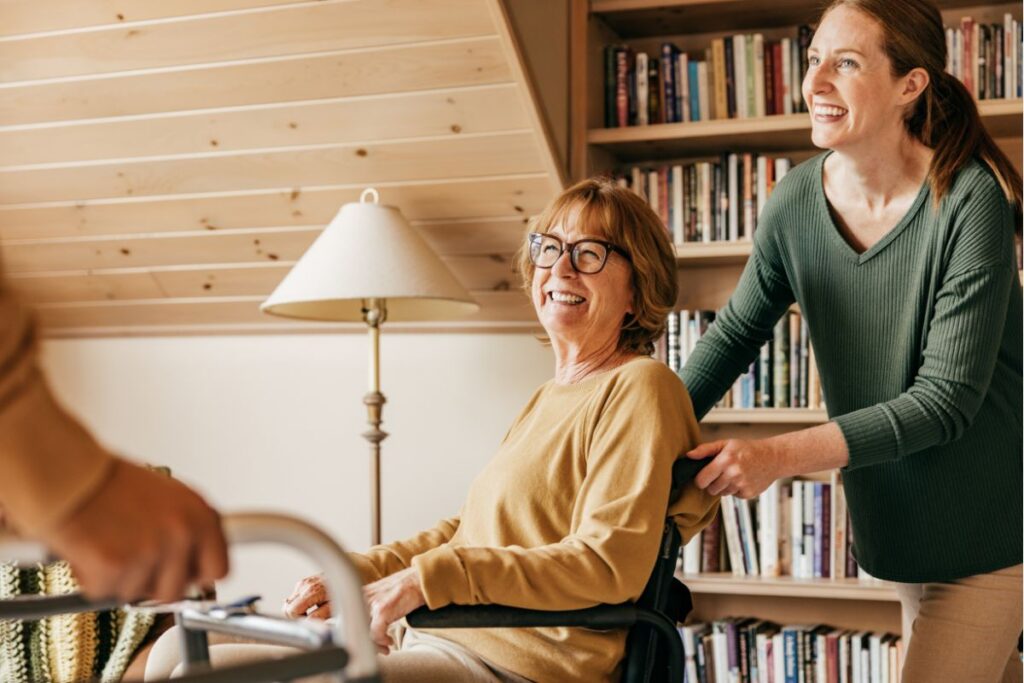I am officially in the time of life where I have parents that need more support with age and children who, although they are young adults, are still living at home and need support as well. This has introduced new challenges in my own self-care as I manage all these needs, and work to stay balanced and healthy myself. I realize there are many of you, who are facing similar circumstances. Pamela Keene shares in an article, Caught in the Middle, Balancing Caregiving Between Generations, “According to the Centers for Disease Control and Prevention, on average, family caregivers spend more than 57 hours each week caring for someone who is disabled or living with limitations. That’s more than eight hours a day- all on top of work and other responsibilities- so it’s easy to see why many caregivers can feel overwhelmed.”
One of the major issues for caregivers is often forgetting about their own needs while investing so much time and focus on others. This is more likely to happen if they don’t have a supportive and engaged network that is checking in with them on a regular basis. When other family members live at a distance or even if nearby, they often won’t volunteer to help if the caregiver is doing a good job. Keene outlines some helpful ideas for families who want to offer support. Preparing and sharing a meal with the person receiving care and the caregiver can encourage conversation and quality time. Receiving some respite care is an essential part of staying healthy for the caregiver. Keene says that respite takes many forms such as, “taking a break for a few hours, a few days or several weeks; bringing in a professional or trained aid to assist with care; and asking a family member to prepare a meal and stay to enjoy it- and the options for how to spend this time are diverse.” The National Respite Network, archrespite.org, can connect caregivers to organizations in every state that provide access to respite services.
Other resources include:
- The Eldercare Locator- it is a public service of the Administration for Community Living, and connects people via ZIP code search to aging and disability resource centers, state units on aging and local area agencies on aging.
- Alzheimer’s Association, the Parkinson’s Foundation, American Heart Association and similar groups provide resources for caregivers and those receiving care.
One consistent emotional struggle that caregivers battle is dealing with feelings of guilt. It seems that no matter how much time and energy is being invested in caring for others, it tends to feel like it is never enough. When I meet with caregivers therapeutically, we work to honestly evaluate the expectations that they are trying to meet. Often we are able to recognize some measure of unrealistic expectations that need to be released in order for healthy life management to happen. Keene concludes by saying, “The reality is that caregiving will touch many of us in some way, and it’s best to be prepared, do some initial research about the availability of resources and talk- at least in general terms- about how your family can be ready to provide the utmost care and support for your loved ones.”
Steps in Pursuit
- Take some time to evaluate all the expectations that you as a caregiver are trying to manage and maintain. Identify areas that may need to change as you accept the needs you have in being healthy.
- If you have a family member who is carrying a greater load of responsibility in caring for someone, take some time to check in with them and see how they are doing and what you might be able to do in offering some respite care.
- Reach out to at least one of the resources above to see what support might be available in your situation.
As we care for one another, we are sharing the love of Christ and being a reflection of life in the Kingdom to the world around us as we go through this season of life.
Continue the Pursuit,
Denise






